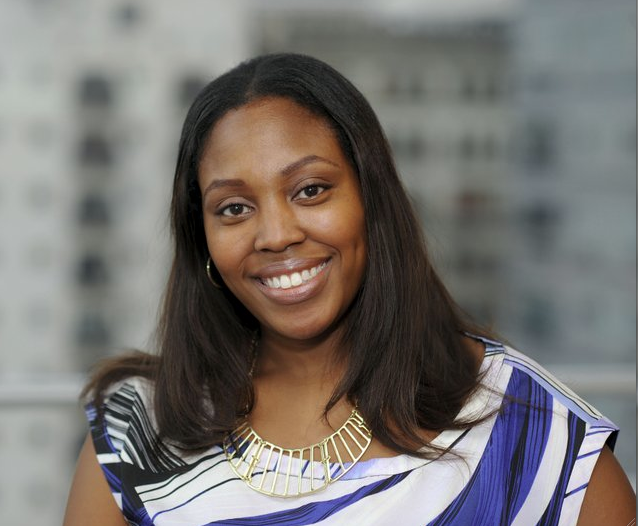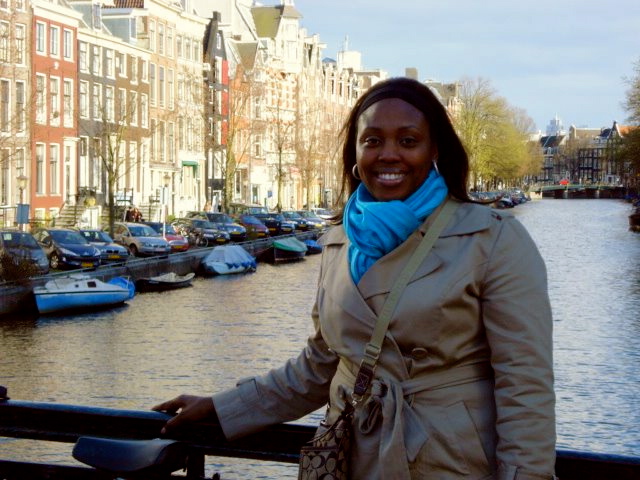Today, SevenPonds speaks with Cadmona Hall from the Alder School of Professional Psychology. With her doctorate in Marriage and Family Therapy, she trains family therapists through a holistic “self-of-the-therapist” approach in which her students examine themselves from a number of identities such as race, class, gender, age, ethnicity and sexual orientation. Her current research focuses on African Americans’ experience with family therapy, but she also explores issues of grief and loss as manifested in couples and families. Today, she speaks with us about Alzheimer’s disease and its implications for families and caregivers.
 Christopher: What is your experience in working with Alzheimer’s?
Christopher: What is your experience in working with Alzheimer’s?
Cadmona: I work from a family therapist’s perceptive, so often family members who meet with me already know that Alzheimer’s is impacting their loved ones and they already see how the symptoms are impacting their family. The other case is when family members are not sure, but notice signs of forgetfulness, memory loss, lack of clarity or change of personality. I intervene by creating dialogue to break down the barriers that keep families from having necessary conversations, either about the loved one’s independence or with the doctor, which many family members are afraid to have. To help people open up, I create a space for them to feel comfortable delving into those topics. I work as a sort of broker of permission to say that it’s normal to have these concerns, to be worried, to not know and to talk about these things.
Christopher: Once this line of communication is open, what happens next when dealing with Alzheimer’s?
Cadmona: It depends on where the family is in the communication process, but often families struggle with meaning-making: they’re unsure of what the diagnosis will mean for the family and of how their family will change. That uncertainty is very difficult for families to deal with. [Some questions to ask are] “What are the fears, the worries? How does the diagnosis change relationships and roles within the family? If someone used to make a lot often decisions, who’s going to take that on? How will the family shift to facilitate this change?” Part of my job is to prompt the conversation that will answer these questions.
Dr. Hall’s Five facts for families experiencing Alzheimer’s:
1. Family dynamics will shift and change along with the progression of the disease.
2. In times of stress families will often resort to familiar coping strategies.
3. Open communication between the patient diagnosed with Alzheimer’s disease and the family or support system is key.
4. Its critical for the family to negotiate care giving roles.
5. Family therapy is a helpful resource for families wanting to process and work through struggles.
Christopher: What are some basic symptoms? You mentioned memory loss and forgetfulness, what else is there?
Cadmona: Alzheimer’s impacts the person’s ability to make decisions as well as his or her mood and behavior. This leads to confusion that is very difficult for family members to deal with, because it’s not so clear-cut. Maybe the loved one forgets the current time periods, but is very connected to the past, which often triggers frustration and anger since he or she can’t access what they want. In the beginning, people are often unsure whether it’s dementia, Alzheimer’s, or or aging process—but that’s a myth. Dementia is not a part of aging: these are two different things.
“…often families struggle with meaning-making: they’re unsure of what the diagnosis will mean for the family and of how their family will change.”
 Christopher: Since the experience of Alzheimer’s is unique, how does it affect the grieving process?
Christopher: Since the experience of Alzheimer’s is unique, how does it affect the grieving process?
Cadmona: You’re watching someone move away from you even though they’re still physically present. It’s like having the heart eroded over time before the person is physically gone. How does someone make sense of that? This duality impacts the grieving process since it can be difficult to comprehend. But it doesn’t necessarily affect the grieving process after the person physically dies or makes that process shorter. Many people expect this, but in general some of the major ways which folks need to cope with grieve and loss still remains the same as far as basic framework or steps I walk through with them after the person has died.
Christopher: Since Alzheimer’s is a progression, are there any ways for families to plan for the different stages?
Cadmona: Absolutely. If someone’s been diagnosed and receives treatment in the early stages, there may be some areas where they have major limitations and others where they can function really well. I collaborate with medical professionals to help the family understand the person’s current stage—what are they capable of and where are they limited. It’s important to have this conversation with the loved one. I think too often the patient is left out of the decision-making process, in which case they feel out of control of their life. It is important for the loved one to maintain a sense of independence, but also to know that this will change.
“In the beginning, people are often unsure whether it’s dementia, Alzheimer’s, or or aging process—but that’s a myth. Dementia is not a part of aging: these are two different things.”
Cadmona: The earlier the diagnosis, the better the family can intervene to slow down the progression of the disease. Doctors are becoming more savvy at knowing which medications are most useful based on the individual’s symptoms and lifestyle. There are also some behavioral practices that are necessary [for treatment to work]. This has to do with how each individual responds to treatment: you can give someone medication, but that doesn’t mean they’ll take it. For example, if the individual is part of a support group that work on frustration, anger and aggression, how is he or she going to get there? This is where the family gets involved; the effects of Alzheimer’s extend beyond the individual.
Christopher: Is there anything you’d like our readers to know about or Alzheimer’s or family care?
“I think too often the patient is left out of the decision-making process, in which case they feel out of control of their life. It is important for the loved one to maintain a sense of independence, but also to know that this will change.”
Cadmona: Well just the last thing is for people to know that their dimensions of culture—race, class, gender, ethnicity, to name a few—are going to impact how they see the disease and how they come together to support each other. Also, even with anticipatory grief, we have rituals informed by the experiences we’ve had that are often difficult when someone is diagnosed. Grief disrupts natural rhythm of the family. I’d like for people to know it’s a “both-and” kind of thing—it’s okay to accept that things are shifting and changing and also to see it as a loss. Both feelings are ok to have at once.
Christopher: Thank you for speaking with us today!
Cadmona: Of course, thank you!
More on Alzheimer’s from SevenPonds:
- 10 Ways You Can Help a Loved One With Alzheimer’s Survive Hospitalization
- What is Restorative Art? – An Interview with Beth Corwi
- A Woman Without a Place
- Love, Loss, and Laughter: Seeing Alzheimer’s Differently

 What does Alzheimer’s mean for family and friends? An Interview with Cadmona Hall
What does Alzheimer’s mean for family and friends? An Interview with Cadmona Hall




 Funeral Home Owner Chris Johnson Spending Halloween in Jail
Funeral Home Owner Chris Johnson Spending Halloween in Jail
 Our Monthly Tip: Toast a Loved One with a Personalized Glass
Our Monthly Tip: Toast a Loved One with a Personalized Glass
 My Cousin’s Death Taught Me the Meaning of Life
My Cousin’s Death Taught Me the Meaning of Life














